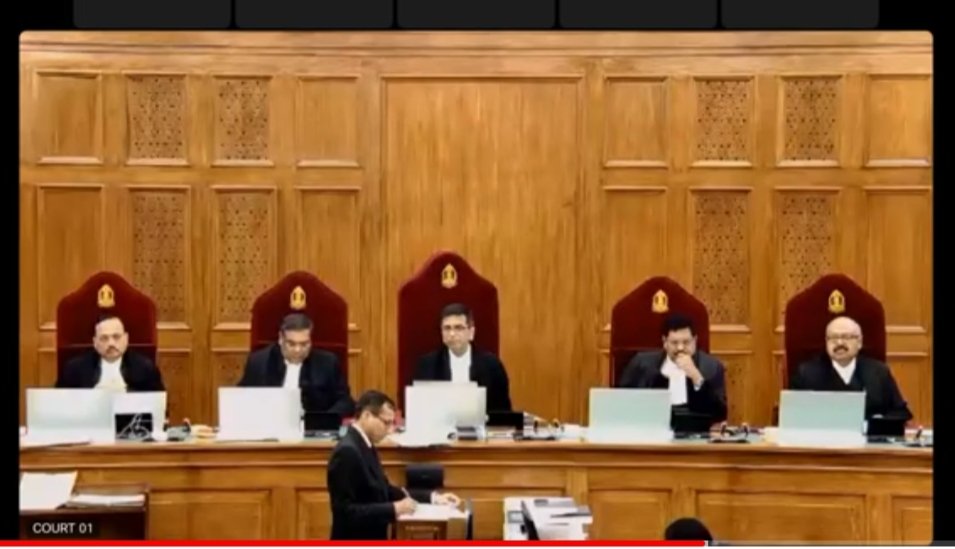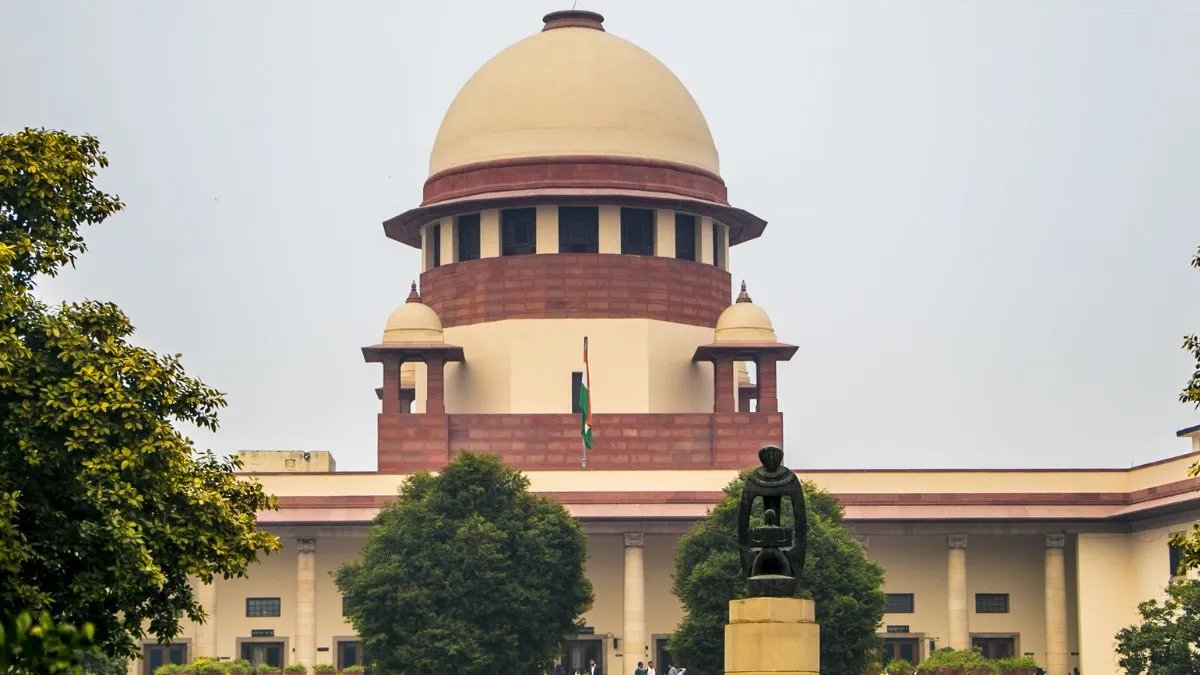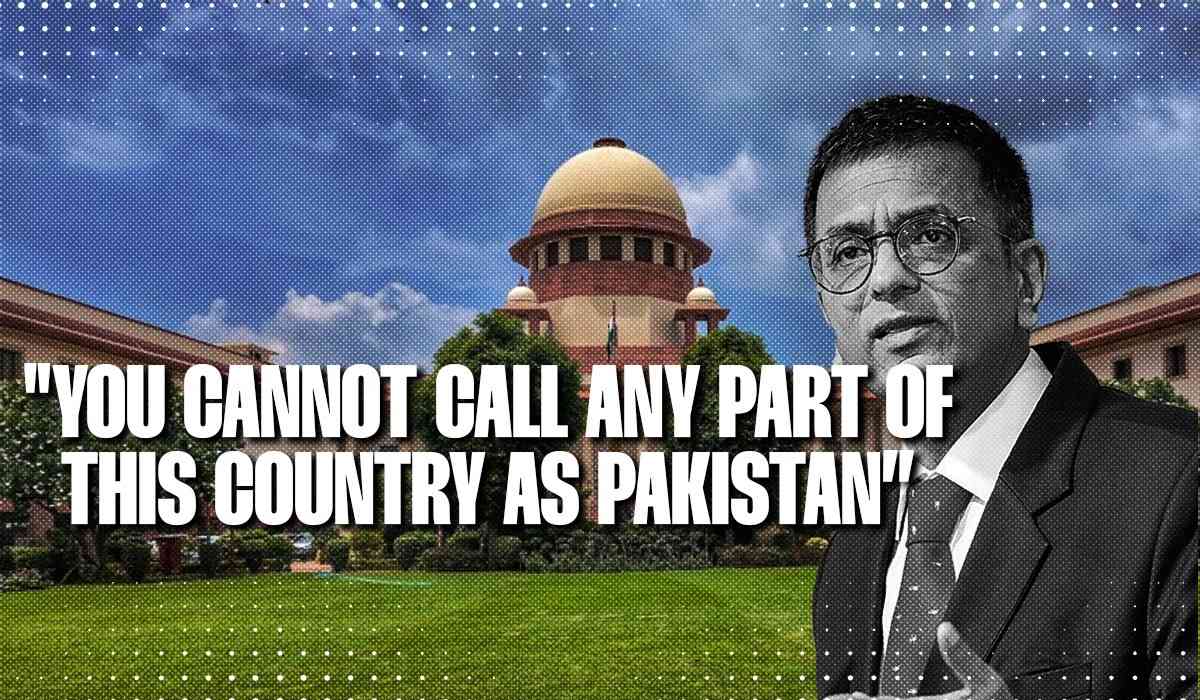
Image source - X
Supreme Court Rejects Karnataka Judge's Misleading Remarks
Protesting strongly over statements made by a Karnataka High Court judge that referred to a local area in Bengaluru as "Pakistan," the Supreme Court on September 25 said that it was not acceptable that any part of India was being called that name as that hurt the territorial integrity of the country.
What the Bench Said
A five-judge bench headed by Chief Justice of India Chandrachud, and comprising Justices Sanjiv Khanna, BR Gavai, Surya Kant, and Hrishikesh Roy, heard the case. Criticism for Justice V Srishanandan came when he referred to a Muslim-dominated area in Bengaluru as "Pakistan". A second video surfaced where the same judge was heard making inappropriate comments about a female lawyer who was arguing a matrimonial dispute.
Apology By The Judge Saves Further Action
The Supreme Court also took cognizance of the video going viral. During the proceedings, it was apparent that the High Court judge was indeed desirous of regretting the matter. In light of this development, the apex court chose not to further pursue the matter. That aside, the bench went on to explain why judges should exercise restraint, and this would especially apply to these times of high media exposure.
Significance of Judges Restraint in this Modern Age
However, the Court emphasized that spontaneous utterances were often a manifestation of personal biases today at worst when such remarks are levelled against communities or genders. The requirement for judicious caution in the whole judicial process was brought underlined since such remarks not only create a negative impact on the individual but also upon the entire judiciary.

Image source - X
Judges Should Maintain Neutrality
In their verdict, the bench re-emphasized that impartiality and fairness are the pillars of justice. In effect, judges need to put aside their personal biases, and their values must march along the lines espoused by the Indian Constitution. The heart and soul of judging is the need to be impartial and fair,
noted CJI Chandrachud.
Apology and Conclusion
The AG and SG suggested that the apology of the judge be accepted as the latter was accidental. The Supreme Court closed the matter after considering the regret expressed by the High Court judge and put forward the dignity and fairness in the judiciary.
With inputs from agencies
Image Source: Multiple agencies
© Copyright 2024. All Rights Reserved Powered by Vygr Media.





















